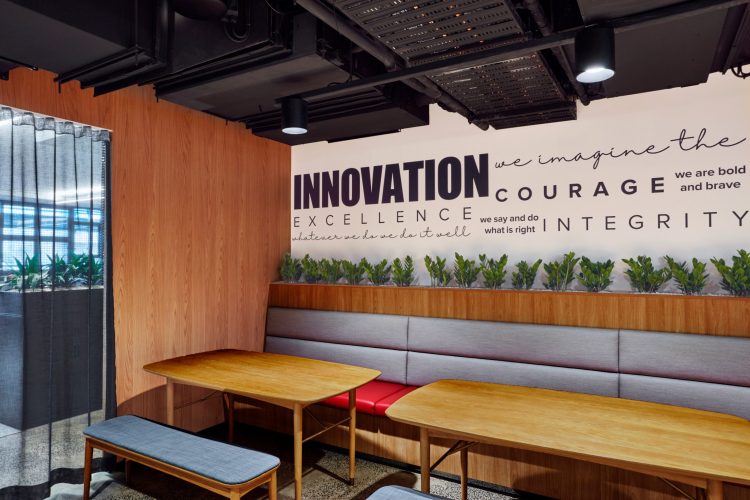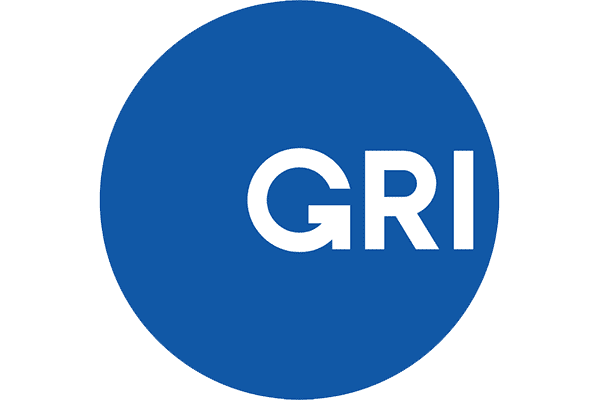FY24 ESG Highlights

Audinate’s ESG focus areas include people & culture, corporate governance, supply chain management and environmental footprint.


Engagement and wellbeing is key to Audinate’s success. Employee feedback is provided through our annual engagement survey and mid-year pulse survey which informs Audinate’s people and culture initiatives.

Audinate prioritises employee engagement and wellbeing as critical pillars of the Company’s success. The feedback gathered also informs Audinate’s people and culture initiatives. Audinate’s employee engagement results align with the top quartile of industry benchmark when compared with a global peer group of technology companies. Wellbeing initiatives at Audinate include an Employee Assistance Program offering cost-free counselling for employees and their immediate family members, wellbeing-themed communications, and mental health first aiders. Importantly, there were no incidents during FY24 requiring WorkCover notification in Australia.
Employee feedback is communicated anonymously to the Board (and the Board Remuneration and Nomination Committee), including the annual engagement survey and mid-year pulse survey results. Additionally, Audinate’s Whistleblower Policy is in place to ensure that any concerns related to unethical or illegal conduct can be confidentially addressed by the Board, fostering a culture of trust and openness within the organisation.
Audinate supports employee development through the Career & Performance Management process. Through formal discussions and ongoing feedback this process fosters a partnership between employees and managers to set goals, discuss feedback and ensure support to enable future growth and performance.
All permanent full-time, part-time employees have access to the online learning platform, and the opportunity to participate in development-focused workshops, or pursue formal education opportunities if relevant. To set managers up for success, formal leadership and management training is provided.
Audinate has a strong commitment to diversity and recognises the value of attracting and retaining people with different backgrounds, knowledge, experiences, and abilities. The Company understands that diversity not only encompasses gender but extends to age, ethnicity, religious beliefs, cultural background, language, marital or family status, sexual orientation, gender identity, disability, socio-economic background, perspective, and experience.

Audinate’s ability to cultivate a diverse and inclusive workplace is essential to the Company’s ability to attract, engage and retain the talent crucial for ongoing success. The Company’s policies, practices and values ensure an environment where individual differences are appreciated, allowing employees to realise their potential and contribute to the Company’s success. By upholding human rights and fostering diversity, Audinate ensures a dynamic and inclusive workplace where individual differences are valued. To further support this inclusive environment, Audinate requires compulsory discrimination and harassment training for all employees. This training is designed to foster appropriate workplace behaviour by educating employees on preventing, recognising and addressing discrimination and harassment in the workplace, ensuring a safe and respectful environment for everyone.
Audinate is proud of the diversity of its people. Of the Company’s 225 people across 13 countries, there are 28 nationalities and 37 countries of birth represented. There is also a broad representation of age groups, with the age range spanning 5 decades. At the end of FY24 females represented 26% of Audinate’s workforce and 22% of the Senior Executive Team (CEO and executive direct reports). The female representation on Audinate’s board is 29%. Audinate is committed to supporting increased female employee representation and is mindful of several factors that influence this.
The gender mix in relevant talent pools continues to be a significant factor. In 2024 Audinate assessed that 71% of its roles required relevant engineering or related qualifications and/or AV industry experience. It is encouraging that the female representation in these roles is broadly reflective of the gender mix in the available talent pools according to relevant industry data. Audinate is committed to practices and an environment that provides increased opportunities for female participation.
More detail is contained in the Company’s Diversity Policy.
| Country of Birth | % |
|---|---|
| Australia | 15% |
| USA | 12% |
| UK | 11% |
| Philippines | 17% |
| China | 8% |
| India | 8% |
| Belgium | 4% |
| Sri Lanka | 2% |
| Various (26 countries) | 18% |
| Unspecified | 5% |
| Age | % |
|---|---|
| 18 – 24 | 2% |
| 25 – 34 | 27% |
| 35 – 44 | 31% |
| 45 – 54 | 30% |
| 55 – 64 | 8% |
| Unspecified | 2% |
Diversity and inclusion objectives
Audinate committed to several objectives to foster a diverse and inclusive workplace over the FY24 and FY25 period. These objectives include further improving recruitment processes to support inclusive and non-biased recruitment and networking to enhance diversity in candidate pools. Through the Company’s annual employee engagement survey Audinate employees were given the opportunity to comment on diversity within the workplace. It was pleasing to know that overwhelmingly the response was that employees were provided equal opportunity for success regardless of gender or background.
In FY24 Audinate continued to sponsor the Women in Technology Society of the University of New South Wales (UNSW) based in Sydney, Australia, supporting the objective to achieve gender diversity in recruitment candidate pools. Audinate hosted an event for UNSW students to provide career and industry insight, and networking opportunities. The Company also contributed mentors for both the UNSW Women in Technology mentoring program and UNSW Career Discovery mentoring program. Audinate’s sponsorship of the UNSW Women in Technology Society enables us to foster female talent in technology, raise Audinate’s profile among female students, and connect with high-potential graduate talent.
Employees continue to enjoy hybrid working under the Company’s Hybrid Working Policy. Audinate has also introduced a connection program for employees on parental leave, since its introduction in 2022, Audinate’s enhanced global Paid Parental Leave Policy has supported 14 new parents across multiple countries, providing paid leave for both primary and secondary carers.
Over the last four financial reporting periods, Audinate had an aspirational objective of 30% of people manager vacancies to be filled by females. The purpose of the objective is to build an environment that fosters female participation and to increase female candidate pools for future senior executive opportunities. Across this combined four-year period Audinate has achieved 24% of female appointments to people manager vacancies. Encouragingly in FY24, 33% of externally appointed people managers were female. This objective will continue to be an area of focus in the year ahead.
Audinate’s Board and management are committed to high corporate governance standards and to actively managing and responding to risks and opportunities. We have a number of Board endorsed policies and statements which focus on company culture including Corporate Governance Statement, Code of Conduct and Diversity policies:

All of these documents are regularly reviewed and updated as necessary.
Audinate is committed to enhancing corporate governance and responsible business practices. The Company proactively addresses critical issues like anti-corruption and human rights. While complying with both local and global regulations, Audinate aims to maximise positive impacts and minimise negative ones, striving to go beyond mere compliance to make a meaningful difference.
Audinate adheres to a comprehensive Code of Conduct, that establishes clear standards in areas such as human rights, anti-corruption, data security and privacy, non-discrimination, diversity and equal opportunity, and workplace health and safety. The Code of Conduct applies to all employees, officers, members of Audinate’s Board of Directors, and the Company’s subsidiaries around the world. All employees are required to review the Code of Conduct upon joining Audinate. Additionally, to reinforce its principles and ensure compliance, employees, including permanent full-time, part-time employees and contractors, undergo training on the Code of Conduct at least every two years.
Board Skills
The Board aims to comprise directors with a broad range of skills, expertise, and experience from a diverse range of backgrounds that is appropriate to the Company and its strategy. The Board, together with the Remuneration and Nomination Committee, regularly reviews the skills required by the business and represented by the Directors of the Board. Together they will determine whether the composition and mix of those skills remain appropriate for the Company’s strategy, subject to limits imposed by the constitution. The Board Skills Matrix includes the following:
Business Risks
Audinate has a sound and robust risk management framework to identify, assess and appropriately manage risks. It regularly reviews and updates a detailed risk register as the risk landscape evolves. A summary of significant risks is detailed in the table below. The table below is not exhaustive and reflects a specific point in time.
We do not purport to list every risk that may be associated with Audinate’s business or the industry in which Audinate operates – the severity of risks assessed is dynamic and may change quickly, new risks may arise and other risks may be addressed or mitigated. Any of these risks and other emerging risks or matters may have a material adverse effect on the business and its financial position and performance.
More detail is contained in Audinate’s Risk Management Policy.
| Risk | Description |
|---|---|
| Video market | As Audinate evolves to provide more video offerings this exposes the business to a new series of risks, including the ability to attract new customers, competition from other video technology providers, effective product and strategy formulation, and execution risk. If the company fails to effectively manage and respond to these risks it could adversely affect the financial results. |
| Geopolitical risks | As a global business Audinate is exposed to geopolitical risks. This includes increased complexity in China – specifically risks around chip supply, manufacturing in China, exporting from HK and implications for tariffs or other trade practices. Audinate has also considered the impact of wars in both the Middle East and Russia/Ukraine. |
| Protection of intellectual property | The value of Audinate’s products is dependent on Audinate’s ability to protect its intellectual property, including business processes and know-how, copyrights, and trademarks. There is a risk that Audinate may be unable to detect the unauthorised use of its intellectual property rights in all instances. Furthermore, actions Audinate takes to protect its intellectual property may not be adequate or enforceable, and failure to protect these rights may impact on operations and financial performance. |
| Technology development risks | Audinate faces a series of risks associated with the ongoing development of its technology. These include the unlicensed use of third party IP in Dante products exposing the business to liability and litigation. There are also challenges associated with age and nature of the Dante technology platform, including hardware components coming end of life and the complexities of software development on an increasingly large and intricate technology platform. |
| Acquisition risks | There is a risk that Audinate undertakes a poor or overpriced acquisition which would be detrimental to shareholder value. |
| Failure to attract and retain customers | The Group’s business relies upon the ability to retain existing customers, attract new business from existing customers as well as attract new customers. It is strategically important for Audinate to reduce the cost barrier of implementing Dante whilst still being fairly compensated for the Dante technology. If the rate of adoption diminishes or declines this would adversely impact financial performance. |
| Channel Inventory Risk | Channel inventory risk arises when Audinate’s customers end up with excess inventory, which may lead to unpredictable order patterns, increased carrying costs, or the need for inventory write-downs, ultimately impacting the company’s financial performance. |
| General economic and financial market conditions | The operating and financial performance of Audinate is influenced by a variety of general domestic and global economic and business conditions that are outside the control of Audinate. There is a risk that prolonged deterioration in general economic conditions may negatively impact the demand for Audinate’s products and negatively impact Audinate’s financial performance, financial position, cash flows, dividends, growth prospects and share price. |
| Dante audio cost barrier to wider adoption | The cost of Dante products has the potential to be a barrier to broader adoption, particularly in low cost audio products such as speakers and microphones. Dante Embedded Platform is a critical step to provide cost effective solution to this market segment. |
| Business model evolution | Disruption / cannibalisation of existing customer and revenue base as Audinate moves away from Chips card and modules and towards software implementations. |
| Legacy technology platform | Audinate has an ongoing program to put legacy platforms through an end of life process. This does not remove the need to accommodate those platforms within the ecosystem, but does remove requirements to continue to add new features to those products. |
| Cyber security | Audinate recognises the evolving risks associated with data and cyber security, and the potential impact to the Company’s reputation and business activities. These risks are proactively managed through a Cyber Security Steering Committee, a Security Operations function and a cross-functional Security Operations Working Group. The Board Audit and Risk Management Committee has oversight of Audinate’s approach to cyber security. This structure aims to monitor security risks, work with partners to establish robust security protocols, educate employees, and implement and manage Audinate security controls, policies and procedures. Audinate has committed to align its Information Security Management System (ISMS) with the ISO27001 standard and is working towards achieving certification. No material breaches of Audinate data security were identified in FY24. |
| Supply chain | See separate section on supply chain. |
In addition to the risks described in the table above, Audinate faces other business risks including (but not limited to) competition in audio networking, industry standardisation, effectively managing trade secrets, expansion into emerging markets, ESG risks, short-selling, impact of tariffs, cash payment fraud and foreign currency exchange risks.
When selecting suppliers and contract manufacturers, Audinate evaluates the quality of their products as well as related controls and processes. Audinate assesses any potential new suppliers through an onboarding process to ensure consistency with internal standards.

Audinate continues to leverage the Supplier Code of Conduct introduced in FY23 to reinforce the Company’s efforts to combat modern slavery and ensure human rights and ethical labor practices across operations and the supply chain. Additionally the Company has implemented a screening capability for customers and resellers to ensure they are not subject to any international trade restrictions. These have both worked to improve supply chain transparency and help suppliers understand the required standards.
When selecting suppliers and contract manufacturers, Audinate evaluates the quality of their products as well as related controls and processes through an onboarding process to ensure consistency with internal standards. Audinate has a long-standing practice of directly managing relationships with key component suppliers rather than relying on contract manufacturers to source all components for the following reasons:
The Group’s main contract manufacturer, VTech Holdings Limited (‘VTech’) is listed on the Hong Kong Stock Exchange and operates manufacturing facilities in mainland China and Malaysia. VTech publishes an annual Sustainability Report, which includes statements on ISO 9001 accreditation and compliance with Modern Slavery and Conflict Minerals regulation. Audinate’s other key suppliers and partners are leading global technology companies and publish similar reports.
Supply chain management controls continue to be regarded as satisfactory and in FY24 Audinate did not identify any substantial residual ESG risk in its supply chain. Supplier risk management procedures and controls are reviewed with reference to the following criteria:
Audinate adheres to national and international trade regulations, including export controls under the laws of the US, EU, and Australia. The Company assigns Export Control Classification Numbers (ECCN) to products and review customers against the International Trade Administration’s Consolidated Screening List.
In addition to the commitments Audinate has made to manage supply chain risks, the Company adheres to several critical environmental and ethical standards to ensure the sustainability and safety of products. These standards include:
Each of these initiatives plays an important role in Audinate’s comprehensive approach to environmental responsibility and ethical sourcing, reflecting the Company’s dedication to protecting human health, preserving the environment, and promoting ethical business practices across the Company’s supply chain.
Audinate is committed to taking ongoing steps to address the environmental impacts of the business. In FY24 Audinate has continued its Scope 1 and 2 carbon emissions inventory calculated in accordance with the Greenhouse Gas (GHG) Protocol Corporate Accounting and Reporting Standards. As a software technology provider, Audinate’s environmental footprint based on Scope 1 and 2 emissions, is relatively small.

In summary, Audinate’s Scope 1 carbon emissions are zero as it does not own any premises with boilers or furnaces or run a fleet of vehicles for business operations. Audinate’s Scope 2 carbon emissions of 110.1 tCO2e came from electricity consumption in four office locations in Sydney, Australia, Portland, USA, Cambridge, UK and Louvain La Neuve, Belgium. This was slightly down from 114.3 tCO2e in FY23. Audinate intends to become carbon neutral (in respect of scope 1 and scope 2 emissions) during FY25. Audinate continues to evaluate Scope 3 measurement methodologies and the level of upstream and downstream Scope 3 emissions associated with the production and distribution of Dante products.
Using emissions factors (kg CO2-e/kWh) the breakdown for Scope 1 and Scope 2 FY24 is
| Category tCO2e | 2024 | 2023 |
|---|---|---|
| Scope 1 | 0.0 | 0.0 |
| Scope 2 | 110.1 | 114.3 |
Deployment of Audinate technology is expected to reduce the amount of on-premises AV equipment and facilitate a transition to AV services in cloud-based software form. Amongst other things, this will improve societal environmental outcomes by ensuring improved audio-visual experiences for people, enhanced virtual collaboration and hybrid working arrangements. The Group recognises the importance of minimising the environmental impact on the business, as well as the opportunity for the Dante technology to help customers and end-users minimise the environmental impacts of their operations.
Audinate is subject to federal, state and local regulations and has procedures in place to comply with applicable regulations in the jurisdictions where the Group operates. During the reporting period, there were no incidents of non-compliance that resulted in regulatory or legal action or fines and penalties, with respect to legislation
We have used the principles of The Global Reporting Initiative (GRI) Sustainability Reporting Standards to broadly guide our disclosures. The Audinate GRI Index maps our ESG disclosures against the GRI Reporting Standards andshould be read in conjunction with the rest of Audinate financial statements, including our FY24 Remuneration Report and the Audinate Corporate Governance Statement.
